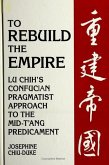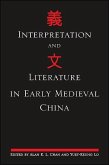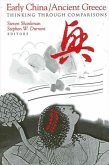This book is the first comprehensive study of "Yijing (Book of Changes) commentary during the Northern Song period, showing how it reflects a coming to terms with major political and social changes. Seen as a transitional period in China's history, the Northern Song (960-1127) is often described as the midpoint in the Tang-Song transition or as the beginning of Song-Ming Neo-Confucianism. Challenging this traditional view, Tze-ki Hon demonstrates the complexity of the Northern Song by breaking it into three periods characterized by, alternately, the reestablishment of civil governance, large-scale reforms, and a descent into factional rivalry. To illustrate the distinct characteristics of these three periods, Hon compares commentaries, by Hu Yuan, Zhang Zai, and Cheng Yi with five other "Yijing commentaries, highlighting the broad parameters, as well as the specific content, of an extremely important world of discourse--"the debate on literati activism. These differing views on the literati's role in civil governance prove how lively, diverse, and intense Northern Song intellectual life was while also reminding us how important it is to understand the history of the period on its own terms.








